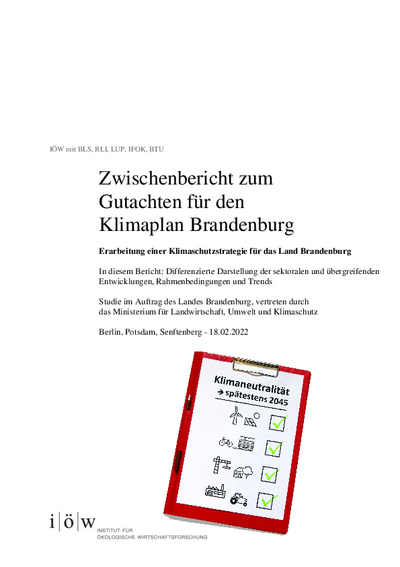Interim Report on the Expert Report for the Brandenburg Climate Plan Development of a Climate Protection Strategy for the State of Brandenburg
The State of Brandenburg wants to be climate neutral by 2045. A participatory climate plan is to pave the way to this goal. In order to make realistic scenarios and measures visible, the Ministry of Agriculture, Environment and Climate Protection (MLUK) has commissioned a project team led by the Institute for Ecological Economy Research (IÖW) with an expert report. The interim report shows, with an analysis of the current situation and trends, that the state's policy must be readjusted in order to achieve its goals.
Brandenburg's greenhouse gas emissions in 2020 correspond to a share of approximately 7 % of the nationwide GHG emissions. This means that Brandenburg has a clearly disproportionate share, measured by the indicators of inhabitants (around 3 %) or economic power (GDP share 2.2 %), which is largely due to the use of lignite. If one compares the per capita GHG emissions, Brandenburg, with about 21 t/EW, is clearly above the German value of 10 t/EW and four times above the global average of about 5 t/EW.
After the first major GHG reductions in the course of reunification - mainly by the energy and waste management sectors - emissions have stagnated in most sectors since 2010. The transport sector in particular has not yet made any progress. There were only major effects again in 2019 and 2020, when several power plant units were taken off the grid (or out of the market) as a result of the coal phase-out that had begun, thus reducing over 10 Mt of CO2 equivalents. However, in order to achieve the reduction targets, the country must take action beyond the coal phase-out and develop effective strategies for all sectors.



